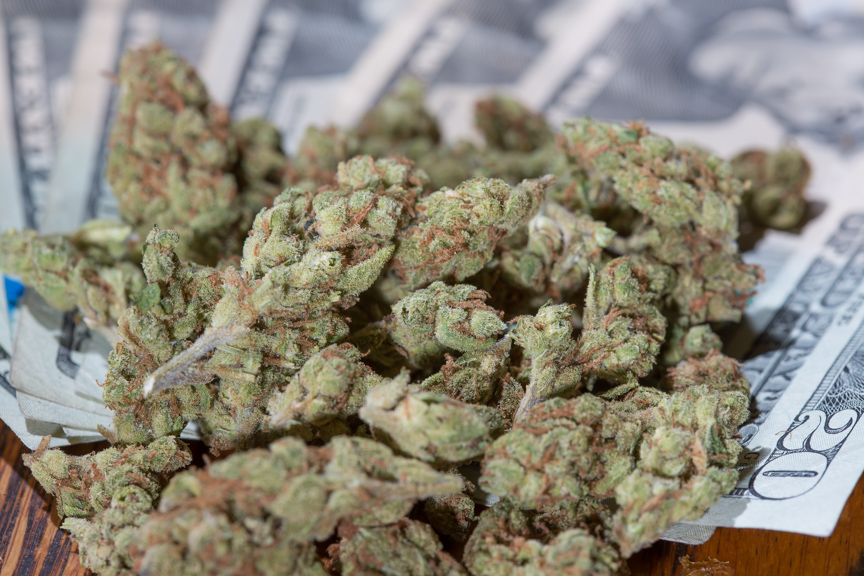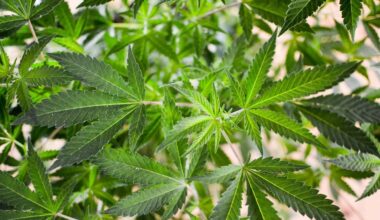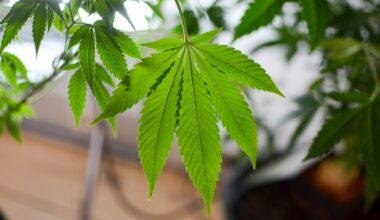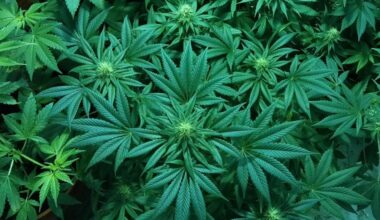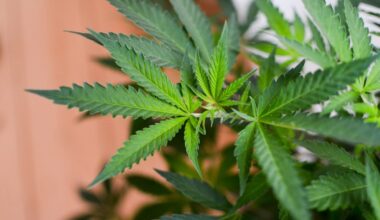Marijuana sales totaled just under $1 billion in Nevada in the 2022 Fiscal Year, generating more than $152 million in cannabis tax revenue, officials reported on Friday. Most of the proceeds are going toward funding schools.
Combined medical cannabis and adult-use marijuana purchases totaled $965,091,123 from July 1, 2021 to June 30, 2022, according to the state Cannabis Compliance Board (CCB).
That’s about $38 million (or 4 percent) less than Nevada took in during the prior fiscal year. But it’s notably higher than the total marijuana sales for the 2020 fiscal year, which amounted to just $685 million.
The bulk of the marijuana purchases ($754,357,922) came from Clark County, where Las Vegas is located. Another $126,857,544 of cannabis was sold in Washoe County, with Reno being the major city in that jurisdiction. The $83,875,657 remainder came from other counties.
Several states saw declining sales totals during the latest fiscal year, which could be due to a range of factors such as lower cannabis prices and people having less disposable income compared to the 2021-2022 period.
Tax revenue from the 10 percent excise tax on recreational cannabis sales in Nevada—as well as a chunk of wholesale excise tax dollars from the medical and adult-use market, along with civil penalties, licensing and other fees—is earmarked for supporting pubic education funding, as prescribed under a bill that Gov. Steve Sisolak (D) previously signed.
That translates into about $147 million in education funding from marijuana sales for the 2022 Fiscal Year, after accounting for operating costs.
Meanwhile, Nevada is expecting to see a boost in sales now that regulators have approved rules for the first adult-use consumption lounges in the state, as authorized under legislation that Sisolak signed last year.
Officials are hopeful that the new business category will drive more sales and attract marijuana tourism.
The governor talked about the economic potential of the cannabis lounge law in a 4/20 op-ed for Marijuana Moment this year, writing that the “idea isn’t new, but no one is doing it like we are in Nevada.”
Sisolak has committed to promoting equity and justice in the state’s marijuana law. In 2020, for example, he pardoned more than 15,000 people who were convicted for low-level cannabis possession. That action was made possible under a resolution the governor introduced that was unanimously approved by the state’s Board of Pardons Commissioners.
Meanwhile, a Nevada judge ruled last month that the Board of Pharmacy’s classification of the drug as a Schedule I substance violates the state Constitution.
The ACLU of Nevada filed a lawsuit earlier this year, alleging that despite voter-approved legalization police have continued to make marijuana-related arrests because the Board of Pharmacy has refused to remove cannabis from its controlled substances list.
That has effectively created a legal “loophole” that the civil rights group says conflicts with long-standing constitutional protections for medical marijuana patients.
Clark County District Court Judge Joe Hardy ruled last month that the board’s designation does, in fact, violate the state Constitution, though he’s still reserving judgment on whether the governmental body has regulatory authority over marijuana until both sides submit draft orders for him to review on that matter.
Separately, in August 2021, a former Las Vegas police officer who sued after facing termination for testing positive for marijuana scored a significant procedural victory, with a district judge denying the department’s request for summary judgement and agreeing that state statute protects employees’ lawful use of cannabis outside of work.
Medical Disclaimer:
The information provided in these blog posts is intended for general informational and educational purposes only. It is not a substitute for professional medical advice, diagnosis, or treatment. Always seek the advice of your physician or other qualified healthcare provider with any questions you may have regarding a medical condition. The use of any information provided in these blog posts is solely at your own risk. The authors and the website do not recommend or endorse any specific products, treatments, or procedures mentioned. Reliance on any information in these blog posts is solely at your own discretion.
